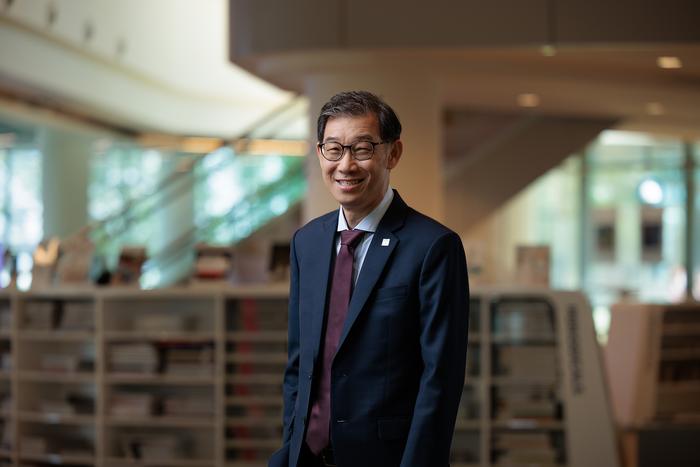Professor Kok-Kwang Phoon, Chair of FOMLIG Executive Board and Editor-in-chief of GEOAI

Professor Kok-Kwang Phoon launched the FOMLIG Council and GEOAI (international journal) during the opening address in the Second Workshop on Future of Machine Learning in Geotechnics (2FOMLIG), Chengdu, China, 11-13 Oct 2024. The basic purpose of the FOMLIG Council is to hasten the development of trustworthy data-centric geotechnics so that machine learning and AI can be deployed in practice and in the longer term to transform practice. This requires academia, industry, and government to network, exchange ideas, and work together within a community such as the FOMLIG Council. The Workshop on Future of Machine Learning in Geotechnics is an annual meeting managed by the FOMLIG Executive Board to achieve the above objectives. In addition to fostering effective partnerships with a shared vision and a commitment to mutual benefit, it is essential to nurture “bilingual” young talents that are experts in geotechnics and digital technologies to be future leaders in trustworthy data-centric geotechnics. As such, FOMLIG Executive Board invites application from early career (ten years or shorter post PhD) and student members (active PhD students). More details are provided in the minutes of the inaugural FOMLIG Council Meeting that took place on 11 October 2024 at the Tivoli & Oaks Chengdu at Cultural Heritage Park, Chengdu, China.
In the 2FOMLIG opening address, Professor Kok-Kwang Phoon also announced the launch of a new international journal by Elsevier, Geodata and AI (GEOAI). All data-driven methods rely on data for training, validation, and inference. Geo-disciplines such as soil science, geotechnical engineering, rock engineering, earthquake engineering, geoenvironmental engineering, engineering geology, mining, geo-hazard, geophysics, and remote sensing share common challenges in terms of data. The reason is that geodata (data relevant to geo-disciplines) originate from the characterization of the constituent ground and observation of the natural/ anthropogenic processes that interact with the ground. The heterogeneous spatial/temporal features and complex sampling characteristics (multi-source, multi-modal, uncertain, sparse, incomplete, potentially corrupted) of geodata are common in these disciplines with potential for cross-fertilization of research ideas that are mainly published in discipline-specific journals thus far. GEOAI invites quality contributions in the form of a technical paper, review/foresight paper, GEOAI benchmark example, short communication, industry communication, and perspective. Details of these article types are provided in the first editorial: https://www.sciencedirect.com/journal/geodata-and-ai/vol/1/suppl/C. The inaugural GEOAI issue is scheduled to be published in March 2025. Invited papers from 2FOMLIG would be published as a special issue.
Attachments:
- Minutes of the inaugural FOMLIG Council Meeting
- Application form for FOMLIG member
- First GEOAI Editorial “Connecting geodata to machine learning and AI”
- GEOAI publicity slide
